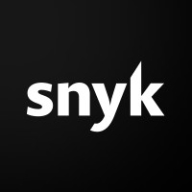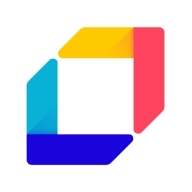

Snyk and Trivy compete in the cybersecurity space, focusing on vulnerability management and container security. Snyk appears to have the upper hand in terms of extensive features and integration capabilities, while Trivy excels in being cost-effective and open-source.
Features: Snyk offers simplicity, numerous integration options, accurate vulnerability databases, and real-time Slack notifications. It provides both SaaS and on-premises solutions. Trivy is an open-source tool with seamless CI/CD integration, effective container image scanning, and misconfiguration identification but lacks a user interface.
Room for Improvement: Snyk could integrate static and dynamic analysis, improve notification filtering, and enhance JIRA integration. Trivy would benefit from runtime scanning, expanding its vulnerability database, improving report generation, and developing a user-friendly interface.
Ease of Deployment and Customer Service: Snyk supports public, private, and hybrid cloud deployments, with responsive customer support and dedicated account managers. Trivy integrates seamlessly with CI/CD pipelines, offering straightforward deployment, but lacks formal support compared to Snyk.
Pricing and ROI: Snyk is a premium tool with extensive features, offering ROI through improved productivity and reduced security roadblocks, although its price might be high for some. Trivy, being open-source, provides significant cost savings, presenting an attractive ROI for budget-conscious teams with robust container security functionality.
| Product | Market Share (%) |
|---|---|
| Trivy | 4.5% |
| Snyk | 4.3% |
| Other | 91.2% |

| Company Size | Count |
|---|---|
| Small Business | 21 |
| Midsize Enterprise | 9 |
| Large Enterprise | 22 |
| Company Size | Count |
|---|---|
| Small Business | 3 |
| Midsize Enterprise | 1 |
| Large Enterprise | 9 |
Snyk excels in integrating security within the development lifecycle, providing teams with an AI Trust Platform that combines speed with security efficiency, ensuring robust AI application development.
Snyk empowers developers with AI-ready engines offering broad coverage, accuracy, and speed essential for modern development. With AI-powered visibility and security, Snyk allows proactive threat prevention and swift threat remediation. The platform supports shifts toward LLM engineering and AI code analysis, enhancing security and development productivity. Snyk collaborates with GenAI coding assistants for improved productivity and AI application threat management. Platform extensibility supports evolving standards with API access and native integrations, ensuring comprehensive and seamless security embedding in development tools.
What are Snyk's standout features?
What benefits can users expect?
Industries leverage Snyk for security in CI/CD pipelines by automating checks for dependency vulnerabilities and managing open-source licenses. Its Docker and Kubernetes scanning capabilities enhance container security, supporting a proactive security approach. Integrations with platforms like GitHub and Azure DevOps optimize implementation across diverse software environments.
Trivy offers comprehensive scanning for files, images, repositories, and infrastructure. It's open-source and integrates with CI/CD for vulnerability detection and security enhancement.
Trivy scans vulnerabilities in code, Docker images, containers, and infrastructure. It integrates seamlessly into DevOps pipelines, ensuring security in dependency management and open source vulnerabilities. This tool, lightweight and open-source, provides user-friendly reports and supports continuous vulnerability database updates, fostering ease of use across operating systems. Users benefit from its scanning capabilities, covering Kubernetes, AWS credentials, and GCP service accounts, effectively identifying vulnerabilities and misconfigurations.
What are Trivy's key features?In industries like technology and finance, Trivy is used extensively to secure applications, perform compliance checks, and offer security metrics visualization. It addresses microservices, container systems, and Kubernetes clusters security requirements, supporting DevOps teams and enhancing codebase analysis precision.
We monitor all Container Security reviews to prevent fraudulent reviews and keep review quality high. We do not post reviews by company employees or direct competitors. We validate each review for authenticity via cross-reference with LinkedIn, and personal follow-up with the reviewer when necessary.